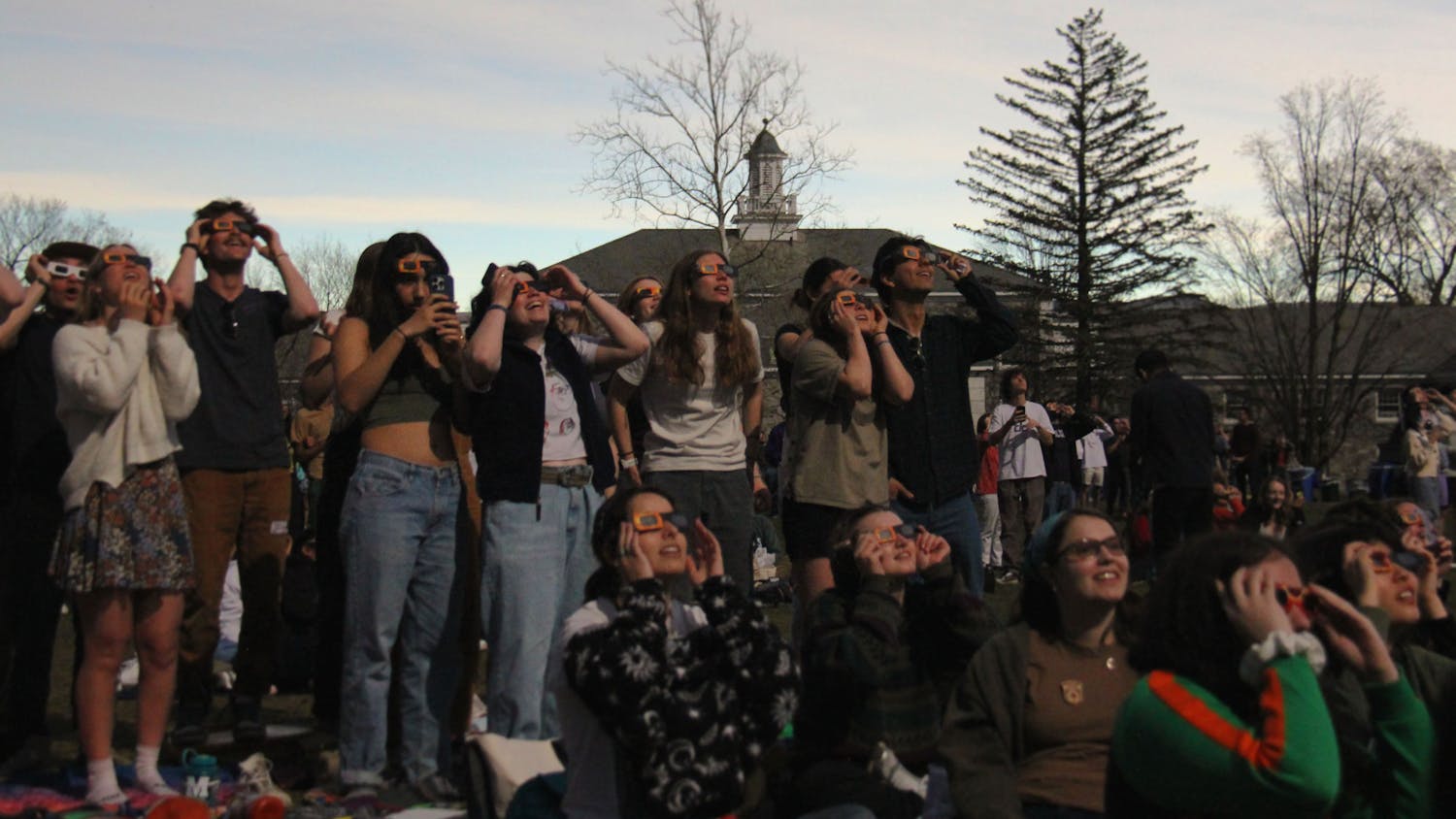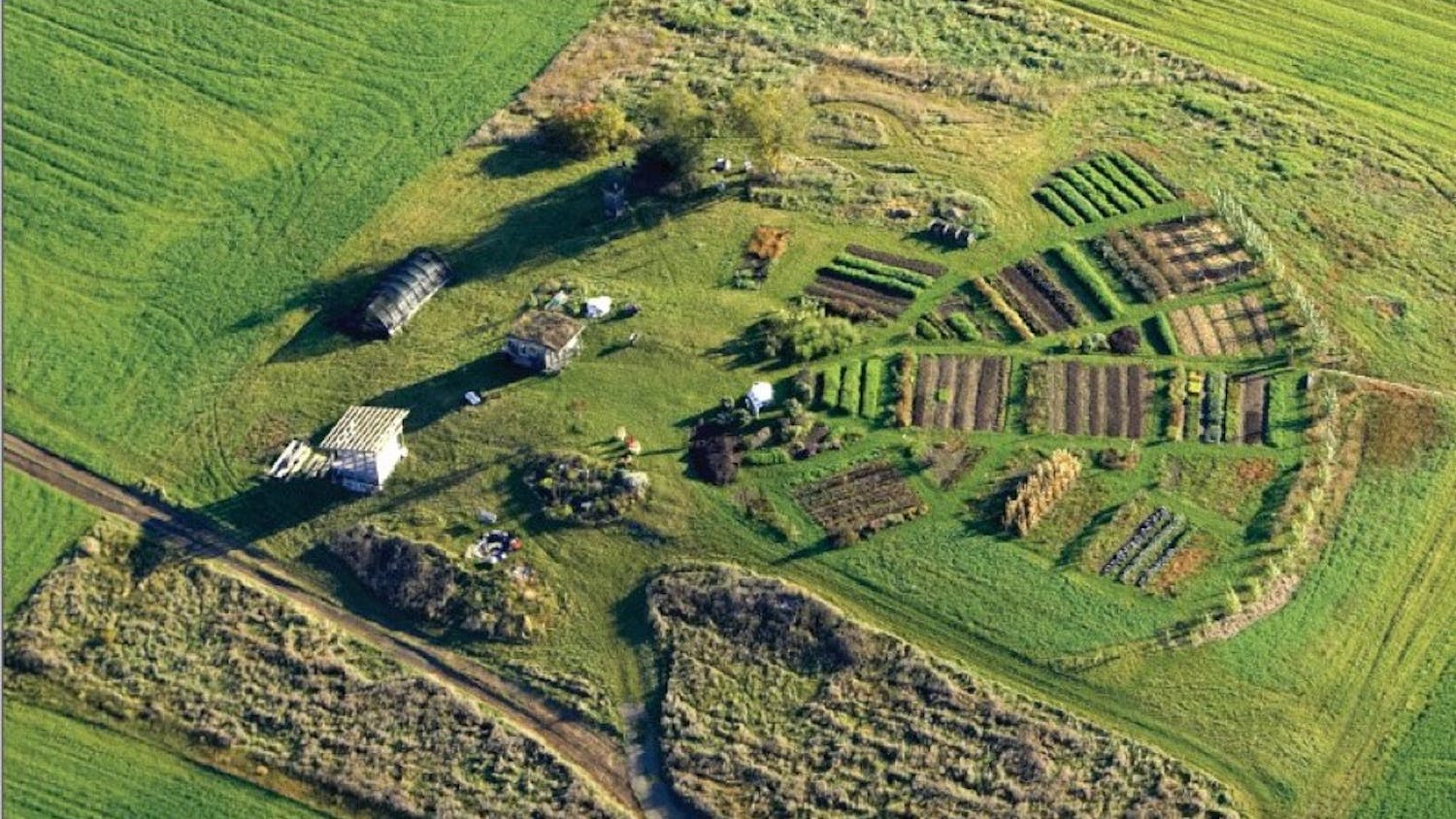Nadia Murad’s talk at Middlebury was canceled last week after the Iraqi Yazidi human rights activist won the Nobel Peace Prize. Murad was honored for her activism against human trafficking and her efforts to end use of rape as a weapon of war. President Laurie L. Patton announced the cancellation in an all-school email, writing, “This is by far the best cancelation notice I have ever had to write.”
[pullquote speaker="President Laurie L. Patton" photo="" align="center" background="on" border="all" shadow="on"]This is by far the best cancelation notice I have ever had to write.[/pullquote]
Murad was captured at the age of 21 by Islamic State (IS) militants in her village of Kocho in 2014. The militants executed much of her family and most of the men and older women who would not convert to Islam. While they were buried them in mass graves, many of the young women, including Murad, were kidnapped and sold into sexual slavery.
She became a part of the Islamic State’s (IS) sex slave trade among many other Yazidi women. While the militant who had taken Murad tried to force her to convert to Islam, she refused. He also tried to force her hand in marriage. During this time she was raped and tortured daily.
After three months, she escaped after being sold to a jihadist in Mosul. She fled to Kurdistan by posing as the wife of a Sunni man. Despite wanting to return home, she could not because the Islamic State still controlled her village. She instead emigrated to Germany, where she lives today.
Murad is now a human rights activist. She shares her intensely painful and personal story to raise awareness for her cause.
Murad spoke at the United Nations Security Council in 2017 and successfully convinced them to approve an investigation into the war crimes committed by IS against the Yazidi people.
Earlier this year, Murad published a memoir titled “The Last Girl: My Story of Captivity, and My Fight Against the Islamic State.”
Murad also founded the nonprofit Nadia’s Initiative. Through the organization, Murad lobbies states and institutions to recognize the Yazidi genocide and works to establish programming in the Sinjar region of Iraq, the ancient homeland of the Yazidi minority.
The Nobel Peace Prize winners were announced early Friday morning. Murad shares the prize with Denis Mukwege, a Congolese gynecologist who has treated tens of thousands of victims of sexual violence.
History Professor Febe Armanios, who was scheduled to introduce Murad, was pleased by the news of her Nobel recognition.
[pullquote speaker="History Professor Febe Armanios" photo="" align="center" background="on" border="all" shadow="on"]It is quite heartening to see that the Nobel Peace Prize Committee has recognized her advocacy and tireless efforts.[/pullquote]
“Nadia’s story is full of pain but also of hope that such horrors would never be repeated,” Armanios said. “Time and again, over the last few years, she’s taken to the microphone to share her experiences on the global stage and has called on the international community to bring to justice those who’ve perpetrated violence against women and minorities. It is quite heartening to see that the Nobel Peace Prize Committee has recognized her advocacy and tireless efforts.”
Originally scheduled to occur later that evening, the talk was part of the Critical Conversations series and was titled “Hope Has an Expiration Date: Exploring the Plight of Victims of Ethnic and Religious Violence in the Middle East.”
Talk Canceled After Activist Awarded Nobel Prize
Comments



